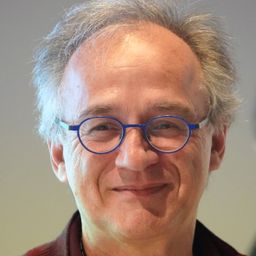
Mengke Zhang is a PhD candidate at EPFL (École Polytechnique Fédérale de Lausanne), the Institute for Area and Global Studies, and is involved in the SNSF project entitled “Uses of cultural heritage at the Beijing Winter Olympic Games of 2022.” She holds a Master of Arts in China Development Studies from the Department of Geography, The University of Hong Kong, and a BA in Chinese from Zhejiang University. Her masters dissertation discusses the heritage discourse in urban China with a case study of the Hangzhou Section of the Grand Canal. Previously, she has been involved in research projects related to the spatial and social transformation of the Chinese danwei system, as well as live music and the digital platform in contemporary China. Her research interests span across urban, cultural and social geography, especially in the fields of urban heritage conservation, culture-led regeneration, and creative and cultural industries in cities.
Her publications:
Zhang, M., & Lenzer Jr, J. H. (2020). Mismatched canal conservation and the authorized heritage discourse in urban China: a case of the Hangzhou Section of the Grand Canal. International Journal of Heritage Studies, 26(2), 105-119.
Zhang, M., Zhang, T., Xiao, Z., & Chai, Y. (2021). Property rights redistribution and the spatial evolution of the Chinese danwei compound: a case study in Beijing. Journal of Housing and the Built Environment, 36(4), 1585-1602.
Sessions in which Mengke Zhang participates
الأربعاء 31 أغسطس, 2022
Sessions in which Mengke Zhang attends
الأحد 28 أغسطس, 2022
Join the conference organisers and TICCIH board members for a welcome cocktail and some festive words of introduction, in the former forge of the École technique de Montréal, founded in 1909, now part of the Université du Québec à Montréal campus.
الإثنين 29 أغسطس, 2022
Industrialization processes have been global from their very beginning. However, their interpretation still tends to be limited to specific locations or regions, and to specific time periods. Regularly, for example, it is stated that the industrial revolution started in Europe, from where it spread to the world, supposedly bringing technological and social progress to „less developed“ countries. Earlier periods of technology and knowledge transfer processes, that were already in place in t...
This session presents case studies and policy reviews that contribute to ongoing debate and international dialogue on the role of planning systems and conservation practices in addressing the challenges of citizen engagement—conserving local interests, place attachments alongside physical remnants of industrial heritage. Over the past half century, we have witnessed the development and changing focuses of urban planning and conservation discourses addressing industrial heritage. Relevant p...
This roundtable will examine innovative and creative pedagogical approaches and partnerships that have created opportunities for experiential learning and community engagement, while enabling successful delivery of programs and courses in industrial heritage. In recent years and with the ongoing situation with the COVID-19 pandemic, undoubtedly online and distance teaching and learning are a top priority. The discussions will offer an analytical dialogue on digital learning strategies and ...
Industrialization processes have been global from their very beginning. However, their interpretation still tends to be limited to specific locations or regions, and to specific time periods. Regularly, for example, it is stated that the industrial revolution started in Europe, from where it spread to the world, supposedly bringing technological and social progress to „less developed“ countries. Earlier periods of technology and knowledge transfer processes, that were already in place in t...
Industrialization processes have been global from their very beginning. However, their interpretation still tends to be limited to specific locations or regions, and to specific time periods. Regularly, for example, it is stated that the industrial revolution started in Europe, from where it spread to the world, supposedly bringing technological and social progress to „less developed“ countries. Earlier periods of technology and knowledge transfer processes, that were already in place in t...
Industrial heritage and photography have a close relationship. Photography is a source for industrial archaeology. It sheds light on the links between people, their tools, their machines and their workplaces. Once the industrial activity is over, photography is also a tool for documenting and studying the sites. But far beyond that, captured by artists capable of transcending common representations, conferring on industrial remains the ugliness of an era that was thought to be over, photog...
Si la vallée du canal de Lachine a été le berceau de l’industrialisation canadienne, la géographie industrielle métropolitaine ne s’y est pas confinée, peu s’en faut, Outre les grandes concentrations d’entreprises des quartiers centraux, elle est constituée des réseaux infrastructuraux, d’une douzaine de centrales hydroélectriques et des ensembles manufacturiers disséminés dans une quinzaine de petites villes aujourd’hui intégrées dans l’aire métropolitaine. La conférence proposera un surv...
الثّلاثاء 30 أغسطس, 2022
Community lies at the heart of the processes of industrialization and de-industrialization. From labor to landscapes and from social fabric to ecological communities, scholars regularly examined the industrial community as core to industrial heritage. However, while social scientists have long studied industrial communities, only recently has there been a general consensus of respecting and working with communities themselves. Even so, working “with” a community on industrial heritage has ...
Drawing on case studies from diverse social, cultural, and political contexts the papers in this session discuss the different responses to maintaining and assessing not only the physical sustainability of industrial heritage but also the sustainability of its social values and meaning.
Drawing on case studies from diverse social, cultural, and political contexts the papers in this session discuss the different responses to maintaining and assessing not only the physical sustainability of industrial heritage but also the sustainability of its social values and meaning.
As a "continent” country, in which industrialization began as early as the 19th century, Canada has seen through deindustrialization and urban redevelopment, parts of this heritage have been either altered or destroyed. Yet, Canada still possesses a very significant industrial heritage. With Canada being a confederation, approaches to the protection and the safeguard of its industrial heritage differs throughout the provinces and territories of the country. The same is true of i...
Industrialization processes have been global from their very beginning. However, their interpretation still tends to be limited to specific locations or regions, and to specific time periods. Regularly, for example, it is stated that the industrial revolution started in Europe, from where it spread to the world, supposedly bringing technological and social progress to „less developed“ countries. Earlier periods of technology and knowledge transfer processes, that were already in place in t...
Drawing on case studies from diverse social, cultural, and political contexts the papers in this session discuss the different responses to maintaining and assessing not only the physical sustainability of industrial heritage but also the sustainability of its social values and meaning.
Efforts to preserve industrial heritage occurs in a socio-economic and political context. But what is being preserved and for whom? And, relatedly, what is the relationship between industrial heritage sites and the deindustrialized working-class communities that often adjoin them? The keynote will consider the ways that the preservation of Montreal’s Lachine Canal, Canada’s premier industrial heritage site, has enabled gentrification processes that have forc...
الأربعاء 31 أغسطس, 2022
The role of industrial heritage in urban development has been extensively acknowledged in guiding and legitimizing the policies and discourses implemented by governments mostly to ensure the continuity between the past, present and future. Mega-events such as sports (e.g. Olympics, World Cup, etc.), cultural (Universal Expositions and national Exhibitions), economic (trade and technology fairs) events are often opportunities used in a top-down process to reinforce the mobilization of the i...
This session addresses a perpetuating disjunction between conceptualisation of heritage and heritage making in heritage studies vis-a-vis heritage management and conservation of industrial heritage sites. There is an inevitable impact of this disjunction on advancing policy in people- and place-centred approaches to heritage futures. This session aims to explore ways in which tangible and intangible traces of the past can be utilised creatively in shaping desirable places to dwell and work...
In this lecture, I would like to talk about deindustrialised communities, heritage and memory in the context of right-wing populism. Drawing on studies of memory and heritage, I argue that right-wing populists have cornered the market on talking about the past of deindustrialised communities. They have successfully misrepresented this rich and complex history to fuel rage, resentment, fear and reactionary nostalgia. Indeed, ‘the past’, and in particular the industr...
الخميس 1 سبتمبر, 2022
From its construction to its restoration, immerse yourself in the now and then of this key Canadian industrial heritage site. A country’s central maritime route, a major inland port, the Canadian Lowell (using hydraulic power), the cradle of industrialization, Smokey Valley (using steam), a manufacturing hotspot, the Lachine Canal is all of this and more. For it is also a national historic site, for which
This session addresses a perpetuating disjunction between conceptualisation of heritage and heritage making in heritage studies vis-a-vis heritage management and conservation of industrial heritage sites. There is an inevitable impact of this disjunction on advancing policy in people- and place-centred approaches to heritage futures. This session aims to explore ways in which tangible and intangible traces of the past can be utilised creatively in shaping desirable places to dwell and work...
The proposed session will examine the unfolding relationship between industrial heritage and those left behind in adjoining deindustrialized working-class areas. The four papers seek to understand the socio-economic and political impact of recognizing the industrial past in the present. Two guiding questions will be asked. Can industrial heritage support those ‘left behind’ in deindustrialized areas where nothing, or very little, has filled the economic or cultural vacuum? Has industrial h...
The proposed session will examine the unfolding relationship between industrial heritage and those left behind in adjoining deindustrialized working-class areas. The four papers seek to understand the socio-economic and political impact of recognizing the industrial past in the present. Two guiding questions will be asked. Can industrial heritage support those ‘left behind’ in deindustrialized areas where nothing, or very little, has filled the economic or cultural vacuum? Has industrial h...
The use of industrial heritage is a profoundly important factor in the process of creating a sustainable economic, social, and political future for many communities occupying industrial heritage landscapes. More than ever we recognize the need for such communities to be capable of shaping and expressing their heritage in different forms in the context of current events and issues, and in doing so to inform both contemporary decision-making as well as the way their industrial heritage is re...
This lecture will argue that the landscapes of industrial heritage that can be found in different parts of the world are directly related to the place-specific trajectories of deindustrialization. In other words: the different ways in which deindustrialization impacts on local communities has a direct bearing on the emergence of forms of industrial heritage. I will differentialte between deindustrialization paths and related industrial heritage regimes in a) Anglo-...
The South Central district is a former industrial and working-class neighbourhood with a rich and unique heritage. The visit will allow us to discover, among other things, the Macdonald Tobacco factory and the Raymond candy factory, the old workers' housing typical of the district, and the reuse of old buildings for cultural and community purposes. The activity will start at the Frontenac metro station and will end with a visit to the Écomusée du fier monde. Staff will be avail...
الجمعة 2 سبتمبر, 2022
Walkers will meet at the entrance (there is only one) of Lionel Groulx Metro and from there walk along the canal to the St-Gabriel Locks. This was once the most heavily industrialized area in Canada. It is now a zone of affluence between the hardscrabble, but now gentrifying, Point Saint-Charles, historically Irish and French, and Little Burgundy, one of Montreal's first multi-racial neighbourhoods. Several former factories were converted into condominiums in the...
In this meeting, TICCIH representatives from around the world will present work in the field of industrial heritage in their respective countries. The presentations are based on the national reports that TICCIH has gathered for the 2022 World Congress, but may emphasize particular matters. These can range across several fields where industrial heritage plays a role – from academic research and other forms of knowledge production, to heritage management a...
In this meeting, TICCIH representatives from around the world will present work in the field of industrial heritage in their respective countries. The presentations are based on the national reports that TICCIH has gathered for the 2022 World Congress, but may emphasize particular matters. These can range across several fields where industrial heritage plays a role – from academic research and other forms of knowledge production, to heritage management a...
In the refusal of people in communities abandoned by industrial capital to abandon their own places, we can read an implicit critique of the mobility and unaccountability of capital, raised by those who were once inside (however tenuously or uncomfortably) and now find themselves marginalized, “left behind.” The desire to catch up again, whether through attracting new investment or transvaluing abandoned sites as tourist attractions, makes this an essentially conservative critique that is ...
Come and share the good times of the congress and celebrate your scientific and professional discoveries in a former fruit jam factory, Usine C, built in 1913 and transformed at the end of the 1970s into a place for creation and dissemination.Discover Montreal's gastronomy thanks to an exceptional caterer. Learn about Montreal's musical heritage and the history of the industrial district that brought it to life. Then hear and experience Quebec's musical tradition as you are carried ...
السّبت 3 سبتمبر, 2022
Uncover the vestiges of the Canadian Pacifie Railway tracks and the former Angus Shops, which played integral raies in the industrial and residential development of Rosemont. This tour wi/1 give you insight into the industrial past of the neighbourhood and its new life bath as a place to live and to work.A tour designed and guided by Heritage Montreal. Departure at the corner of Rachel and Dézéry streets, 10 minutes walk from Prefontaine metro station














